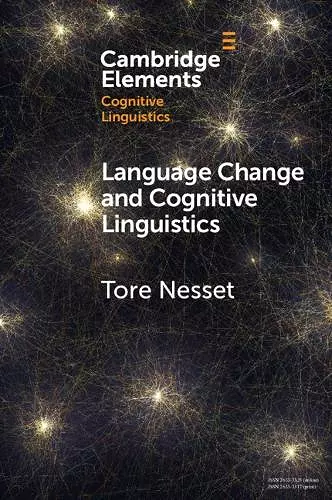Language Change and Cognitive Linguistics
Case Studies from the History of Russian
Format:Paperback
Publisher:Cambridge University Press
Published:1st Dec '22
Currently unavailable, and unfortunately no date known when it will be back

This Element shows how Cognitive Grammar sharpens our understanding of language change through seven case studies from Russian.
The purpose of this Cambridge Element is to bring together three subfields of the language sciences: cognitive, historical (diachronic), and Russian linguistics. The author demonstrates that Russian has a lot to offer the historically oriented cognitive linguist, given its well-documented history and complex phonology and morpho-syntax.The purpose of this Cambridge Element is to bring together three subfields of the language sciences: cognitive, historical (diachronic), and Russian linguistics. Although diachrony has inspired a number of important works in recent years, historical linguistics is still underrepresented in cognitive linguistics, and the most influential publications mainly concern the history of English. This is an unfortunate bias, especially since its lack of morphological complexity makes English a typologically unusual language. In this Cambridge Element, the author demonstrates that Russian has a lot to offer the historically oriented cognitive linguist, given its well-documented history and complex phonology and morpho-syntax. Through seven case studies the author illustrates the relevance of four basic tenets of Cognitive Grammar: the cognitive, semiotic, network, and usage-based commitments.
ISBN: 9781009013536
Dimensions: 228mm x 152mm x 5mm
Weight: 150g
75 pages